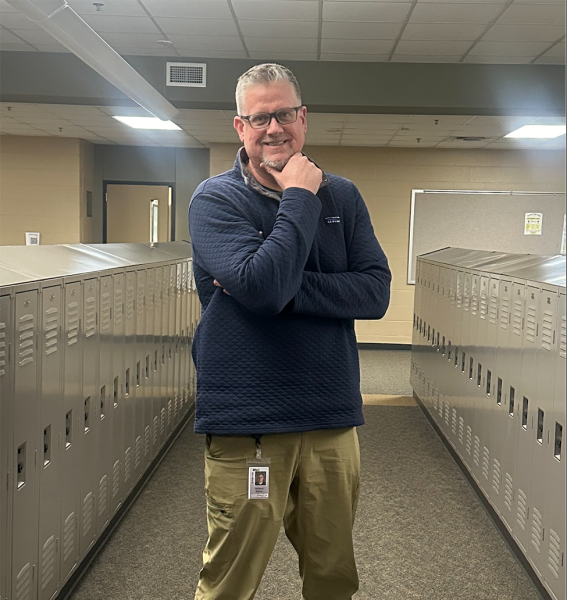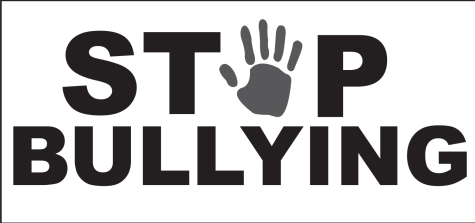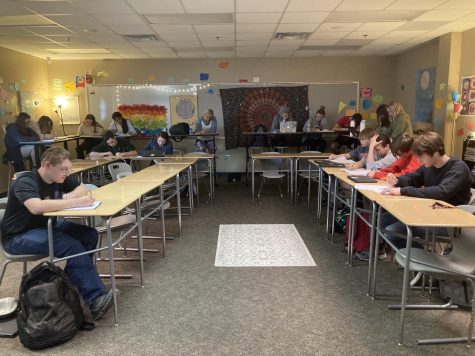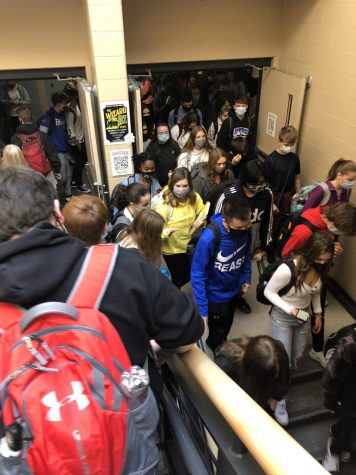Students Focus on Balancing Mental Health and Activities
The game starts in an hour, but you’ve still got a mountain of homework to finish. Do you stay home and work on all of your assignments, or do you put it off and go have fun tonight?
In the end, the stress from trying to pick between the two leads you to collapse on the couch. The next time you look at the clock, it’s already 10:00 p.m.
Great, another night where you broke down and ended up doing nothing.
Mental health is a prominent issue among high school students, and it can have disastrous effects on your success and well-being. Between everything that high school students deal with on a daily basis, it’s easy to get overwhelmed.
Senior Kadyn Proctor, a 5 star athlete who committed to the University of Iowa earlier this year, has a lot on his plate. He’s a captain of the football team on top of all the work accumulated from having a full school day every day.
He keeps up with it all by narrowing his gaze, only focusing on what he needs to do rather than the stuff he doesn’t want to see. Still, all of that can pile up and really take a toll on a person’s mental health.
“Not letting it affect me is something that I kind of focus on. You know, talking with people that I trust and can understand where I’m coming from,” said Proctor. “People that have had the same experiences as me, I reach out to them and ask them questions.”
Like Proctor, many students have a packed schedule between school and activities. The stress from everything in a student’s day-to-day life can pile up, which according to www.nyu.edu, can lead to more severe issues like depression and anxiety.
To reduce stress, counselor Valerie Powell suggests creating study groups to help lessen an individual’s workload. She also recommends utilizing the tutors and after school homework help.
Sometimes it’s also important to consider that a class or activity might be too difficult or stressful to continue moving forward with. Depending on how important it is to an individual, continuing on might have ill effects on their mental state. However, that’s not to say that quitting is the right option, or even the only option.
“If you haven’t [thought about qutting], you have never put forth what you felt was your maximum effort into something only to feel absolutely drained at the end,” said senior Hannah Schwemm.
It’s very possible to mistake burnout for failure.
“About 23% of students experience high levels of emotional exhaustion [better known as burnout],” according to the National Library of Medicine (NLM).
Though it may not always seem like it, there may be more gas left in the tank. More left to give.
“You don’t have to be a superhero or a quick learner to succeed in school,” said Schwemm. “Always remember that your health mentally, physically, and emotionally comes first.”
Burnout can be proof of just how hard you’re working, but it can also be proof of just how stressed out you might be. In either case, it’s a sign to take a step back and reevaluate your situation.
“There’s always those days that are the hardest, there’s always those moments where you think in your head, Shoot, why am I doing this?” said Proctor.
Unfortunately, mental illness isn’t an uncommon issue. According to UNICEF, 1 in 7 adolescents suffer from it. What that also means is that there are resources available to help manage it before it’s too late.
Declining mental health is too heavy of an issue to be ignored. Disorders like depression, anxiety, and many others aren’t something that will just go away if you pretend they aren’t there. If you feel like you or someone you know is spiraling, please ask someone for help.
It can be someone close to you, like a family member or friend, or it can be a professional. We have excellent counselors here that are more than willing to help with anything they can.
Alternatively, there’s a page onthe Southeast Polk CSD website to find additional information/assistance. To find it, open the STUDENTS tab on the Home page and click on the “Student and Family Assistance” link. The page has links to free counseling services and other community services.
If nothing else, dial the Suicide & Crisis Lifeline at 988 (the previous number, 1-800-273-8255, is still in service and will continue to be indefinitely). The new number is shorter and easier to remember, and there’s 24/7 support on the other end of the line.
“There’s always help out there,” said Proctor. “I’ve had friends that have committed suicide, and I never got to talk to them before that point. Some people hide it and you just can’t hide it, you gotta talk about it.”











